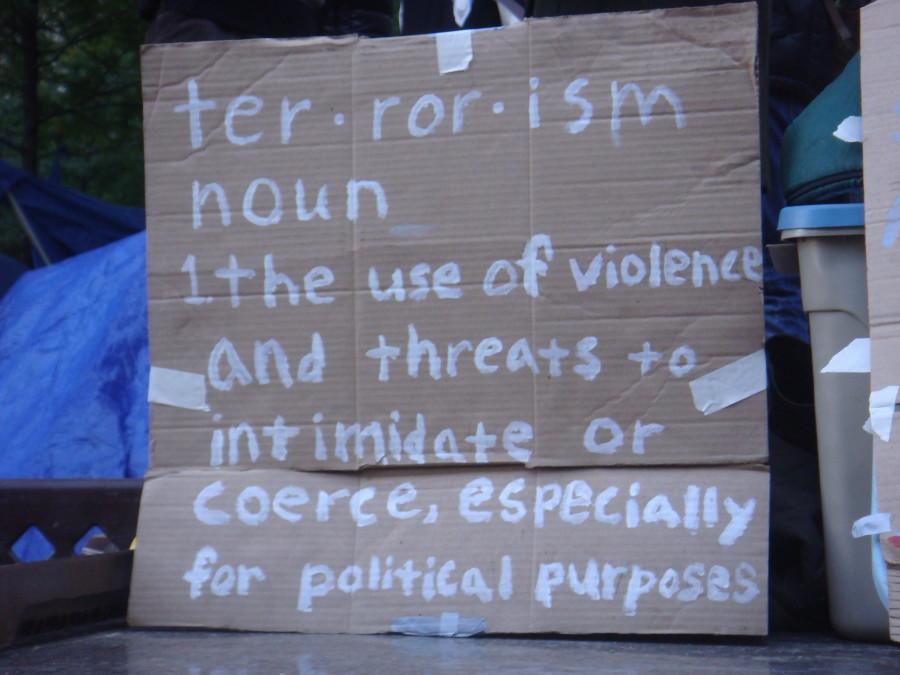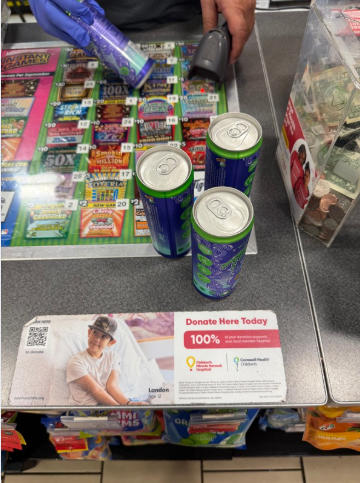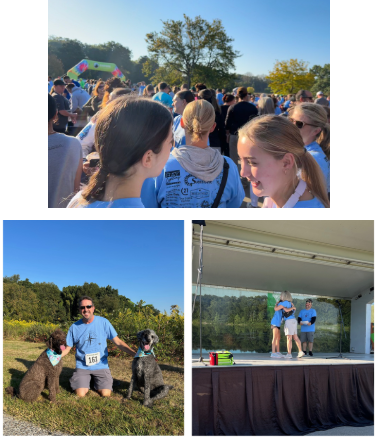While terrorism has always been around in some fashion, government teacher Ms. Jill Jessen elaborates about when terrorism moved to the forefront of the national dialogue.
“I think that again the most current view on terrorism shifted into more of our day to day life after 9/11,” Ms. Jessen said. “I know there definitely was an awareness of things going on in the U.S. and other countries around the world long before that, but 9/11 brought it home. In some ways it was a little more personal and more international.”
Ms. Jessen also believes that there has always been terrorists in America, but it wasn’t always from an outside source.
“I was thinking that before 9/11 we did have terrorist attacks. We had the Oklahoma City bombing and we had the unabomber that I remember. So it wasn’t we didn’t have terrorists it was just that they were homegrown,” Ms. Jessen said. “Most of the time it was white men and I think 9/11 shifted the dialogue of terrorism to an international focus and added the Muslim element to the discussion that didn’t exist there before.”
Junior Fadi Mandwee believes terrorism has affected American society.
“I feel it scares some people, worries people and makes people more cautious because ever since 9/11 pilots are trained in that situation. Also many other changes have been made to airplanes themselves,” Mandwee said. “Also I feel that the CIA has gotten more advanced. The NSA was created because of that tragedy. But there are cons to it. Now there is more infringement on rights.”
Ms. Jessen agrees with Mandwee, but believes fear has always been prevalent in America.
“I remember listening to my grandparents talking when I was young and I think every generation had an element of fear. My grandparents lived through the Great Depression. My dad’s generation had their own element of fear. There was McCarthyism in there. The whole Cold War. We have always this element of fear in society,” Ms. Jessen said. “But I think throughout history terrorism has impacted in creating fear and generates this idea of being unsafe. It’s often an avenue through which a government or other institutions that organize people to use this as a rallying cry. Things like 9/11 had the impact of rallying us.”
Ms. Jessen also believes society gives up a lot of freedoms for a perception of safety.
“When you look at things happening at airports and the increase of security in airports,” Ms. Jessen said. “It’s always through this lens of we need to increase public safety so then your technology becomes more and more invasive in scanning people and, well, we see that’s something to give up.”
Mandwee also believes terrorism has had effects on other countries around the world as well.
“I feel most societies have basically the same thing as what I just told you. They’re very similar to American societies in that manner. Lufthansa, the German airline, did the same changes as American airlines because of the threat of terrorism on an airline,” Mandwee said. “But also I feel that there are more spy agencies in American allied countries like France and Germany, so that if there is terrorist group in that country they can prevent an attack.”
Ms. Jessen partially agrees with Mandwee, but doesn’t really know how countries around the world are thinking.
“I don’t really know,” Ms. Jessen said. “Sometimes Americans are very insular, and I don’t really think we really know what people in other countries are thinking. But with the countries that are directly affected I think it would be similar: fear, a lack of safety, a recognition that their safety isn’t guaranteed.”
Mandwee has personally been affected by terrorism.
“Obviously I am kind of angry that the U.S. isn’t doing anything to prevent ISIS from hurting people,” Mandwee said. “They aren’t using much force, which kind of angers me.”
Ms. Jessen has also personally been affected by terrorism.
“I can honestly say that in the last couple school years I found myself that the news and media becoming increasingly fearful for the future. And I have even come to a place where I find myself embracing and preparing for the day in the future where my rights are not guaranteed,” Ms. Jessen said. “Where the foundation of America whether it’s from outside forces or if it’s from our own internal kind of combustion that my rights as an American are not guaranteed and I don’t know if that’s a reality.”
Ms. Jessen believes many terrorist organizations form because of society today.
“I think at the heart of the issue it’s the reality that we live in an imperfect and broken world in the most simple forms. I think that at the very root it’s always some sort of brokenness, imperfection. A desire to right that wrong that we see in the world. I really do think in the mind of the terrorist groups that they really are trying to right what they see as wrong in this world,” Ms. Jessen said. “Even though a lot of people wouldn’t agree to their version of right. I do think too there is the basic human motives of power, greed, control and making the world how you want it to be. Sometimes it’s the willingness to live with differences and again this coming from an American point of view. And that’s part of the fabric of who we are – embracing and tolerating one another but still being friends with another. And it seems that what we see that motivates these terrorist groups is the unwillingness to live with one another.”
Mandwee believes terrorist groups form because there is no government in a country to stop terrorism.
“If you look at history when American troops left Iraq, Obama pulled out American troops. Immediately after Obama pulled out the troops, ISIS started to form because there is no security in that country anymore. There is no stability, no government and if their is no government in the country then obviously terrorist groups are going to form,” Mandwee said. “For example in Somalia there is no government in there whatsoever. So pirates and terrorist groups in that country have the ability to do whatever they want. Also if you don’t stop them immediately they will get larger and control more areas of the country and eventually it will be very hard to stop them because they will have entire control of the country. And then they will start genocides in the country. For example ’60 Minutes’ did a special on the Christians in Iraq and how countries aren’t helping them at all. No country wants to go in there. I feel if countries went in there and Obama sent troops went in there and they’ll be forced to stop them.”
Many people believe there are effects on the American society from terrorism many believe America should have a role in stopping terrorism. But Sophomore Drew Boudreau doesn’t believe America should do anything.
“I feel if they are not attacking us,” Boudreau said. “Then we should just stay out of it.”
Mandwee believes the U.S. struggles to determine when to get involved in national affairs.
“I feel the U.S. doesn’t know when to get into foreign countries issues and not to get into foreign countries issues,” Mandwee said. “Bush, I don’t feel that he should have gotten into Iraq’s issues. But now I think Obama should get into the issue but he isn’t getting into the issue. So America doesn’t really know when to get into foreign affairs.”
Many others also believe students in the community can do things to combat terrorism.
“Well there isn’t terrorism in the U.S., I mean large terrorism. There isn’t a large group attacking the white house so Americans can’t really do much personally in this country to stop terrorism but they could vote for leaders who are willing to stop it overseas and they could protest the country to do something overseas,” Mandwee said. “That’s pretty much all they can do. I don’t think any American who isn’t a soldier will get a gun, go there and attack them. Because that doesn’t really happen, you have to be a soldier and have to tell the government to do something.”
Ms. Jessen explains what students can so to help combat terrorism.
“As far as what we can do on a bigger level, we don’t make decisions that really impact the bigger picture. But we certainly can be informed and communicate to our congressmen what we think should happen and try to get clarity to the larger national discussion,” Ms. Jessen said. “We can be aware of international aid organizations that are active in the areas where terrorism is active. So I think there are things we can do.”







